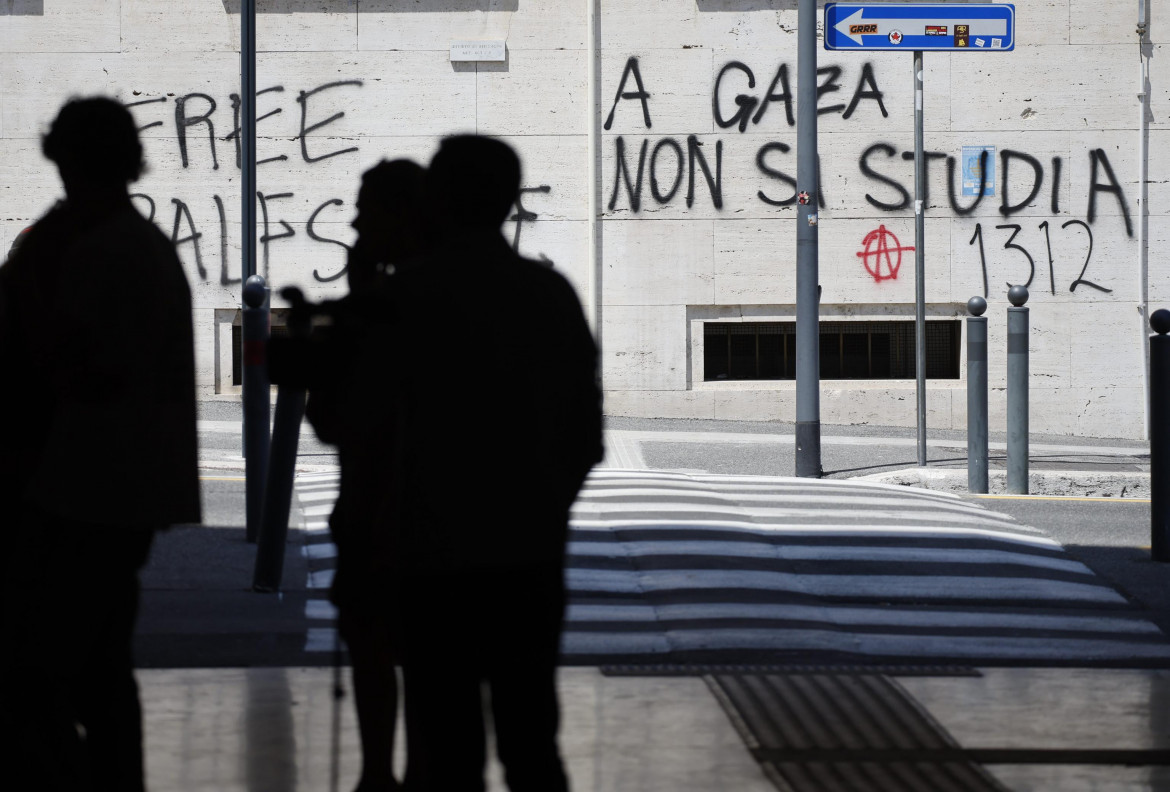Report
Meloni: ‘Some of the protesters are professional protesters’
Italian students are rising up. After Rome, Bologna, Naples, Palermo, Padua, Turin, Pisa, Venice, Bergamo and Trento, on Wednesday, the day of the Nakba remembrance, tents were also set up in Genoa, Florence, Bari and Cosenza.

On Tuesday, Prime Minister Meloni made the government’s position on the pro-Palestine student protests official. During an event in Milan, she expressed her views clearly: “Some of the protesters are professional protesters who provoke the police in the hope that something will go wrong and people will be able to say that the government is using authoritarian methods and no one will condemn those violent individuals.” She said that 126 police have been injured at marches in recent months, and they “deserve respect.”
Meanwhile, rallies and sit-ins are being held at several universities. After Rome, Bologna, Naples, Palermo, Padua, Turin, Pisa, Venice, Bergamo and Trento, on Wednesday (the day of the Nakba, the first forced exodus of the Palestinians) tents were also set up in Genoa, Florence, Bari and Cosenza. In Milan, after the State and Polytechnic universities, the protest has also spread to Bicocca. At the University of Macerata, the “students’ intifada” has begun: on Tuesday, a meeting at the Faculty of Political Science that had as guests, among others, representatives of the Israeli Bar-Ilan University was interrupted, and a day of mobilization has been called for today.
“Considering what is taking place in the Middle East,” the Depangher collective wrote, “the only response we can accept from the institutional structure of the university is one that confirms the immediate suspension of all agreements with the aforementioned universities.” Furthermore, on Tuesday, the incidents that were feared in Rome, Milan, Padua and Pisa, where meetings of the universities’ academic senates were scheduled, did not take place.
La Sapienza was surrounded by police trucks, but the march, consisting of about 400 students, remained inside the campus. “The rector is not afraid of infiltrators because there are no such infiltrators,” said the collectives, calling for the resignation of Rector Antonella Polimeni, who has so far espoused a hard line even with respect to faculty, researchers, doctoral students and administrative staff who, like the students, are demanding a review of agreements with the weapons industry. “We are a global student movement that wants an end to the genocide in Palestine,” the collectives said via their joint coordination committee. “Not only do we demand a halt to the agreements with Israel, but also political solutions and not fake pacifism in places where minds are educated.”
The academic senate of the University of Padua unanimously approved a motion in which it “expresses dismay and deep concern at the dramatic further development of the conflict, conducted by the Israeli army with unjustifiable rage against the Palestinian civilian population, who deserve support and solidarity.” However, according to the collectives, the document doesn’t go far enough because it does not include any forms of boycott of Israeli universities.
The University of Pisa also said in a press release that it shares the “concern about the tragic evolution of the situation in Rafah and the Gaza Strip, and adds its own voice to all the voices calling for an immediate ceasefire, the release of hostages and free access to humanitarian aid.” However, as in Padua, it resolved “not to join boycotts.” As for “dual use” projects with military applications, the professors at Pisa could only give reassurances that collaborations will be examined “on a case-by-case basis.”
Originally published at https://ilmanifesto.it/meloni-alcuni-manifestanti-sono-provocatori-professionisti on 2024-05-15
